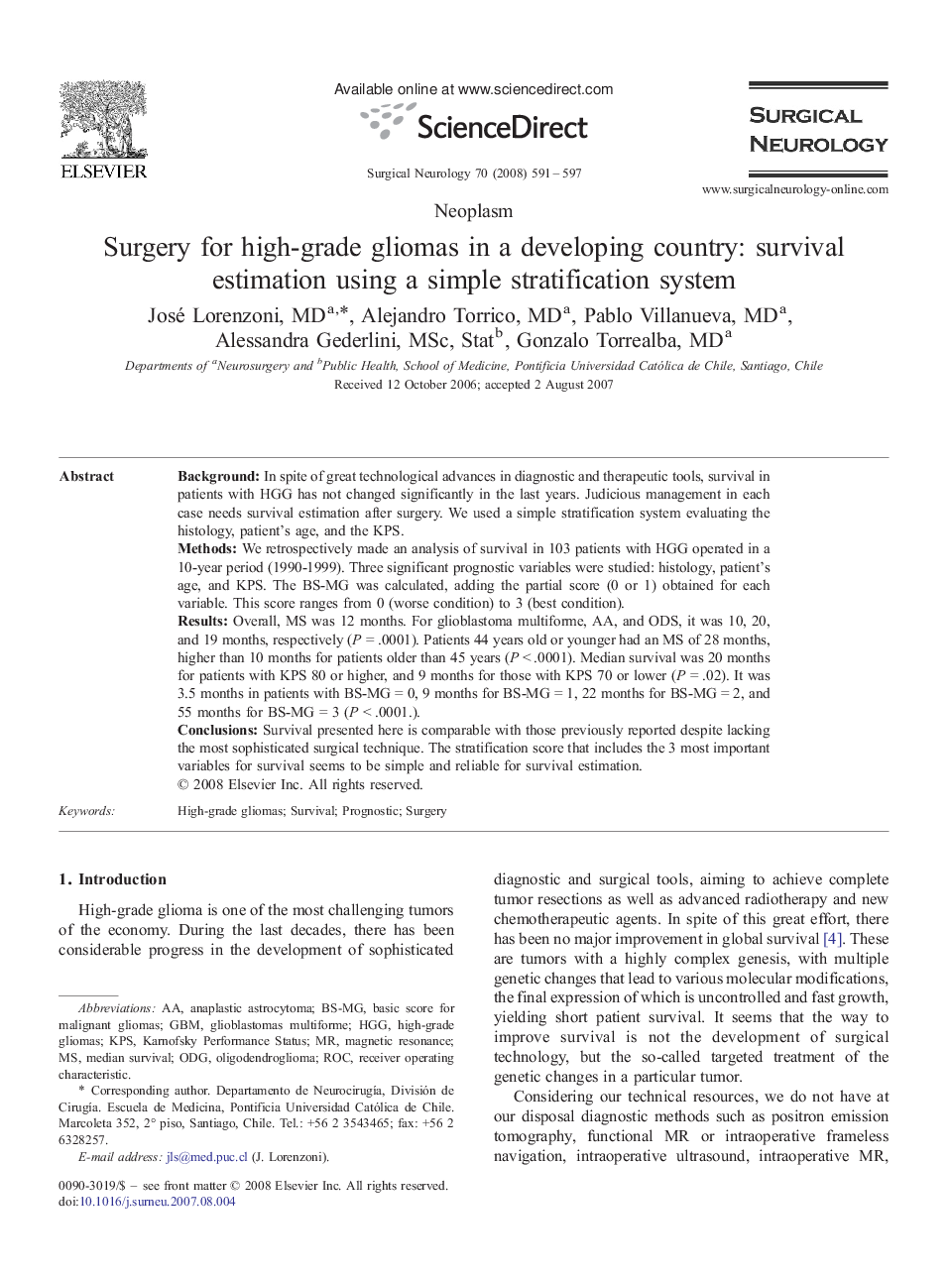| Article ID | Journal | Published Year | Pages | File Type |
|---|---|---|---|---|
| 3092688 | Surgical Neurology | 2008 | 7 Pages |
BackgroundIn spite of great technological advances in diagnostic and therapeutic tools, survival in patients with HGG has not changed significantly in the last years. Judicious management in each case needs survival estimation after surgery. We used a simple stratification system evaluating the histology, patient's age, and the KPS.MethodsWe retrospectively made an analysis of survival in 103 patients with HGG operated in a 10-year period (1990-1999). Three significant prognostic variables were studied: histology, patient's age, and KPS. The BS-MG was calculated, adding the partial score (0 or 1) obtained for each variable. This score ranges from 0 (worse condition) to 3 (best condition).ResultsOverall, MS was 12 months. For glioblastoma multiforme, AA, and ODS, it was 10, 20, and 19 months, respectively (P = .0001). Patients 44 years old or younger had an MS of 28 months, higher than 10 months for patients older than 45 years (P < .0001). Median survival was 20 months for patients with KPS 80 or higher, and 9 months for those with KPS 70 or lower (P = .02). It was 3.5 months in patients with BS-MG = 0, 9 months for BS-MG = 1, 22 months for BS-MG = 2, and 55 months for BS-MG = 3 (P < .0001.).ConclusionsSurvival presented here is comparable with those previously reported despite lacking the most sophisticated surgical technique. The stratification score that includes the 3 most important variables for survival seems to be simple and reliable for survival estimation.
